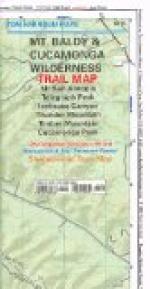But only one American friend of Lieutenant Farrar’s, who has let out the secret to the writer, knows that the binding truth of human brotherhood was first born into him when, on Katahdin’s side, he helped to bury a thieving half-Indian.
CHAPTER XXIV.
“KEEPING THINGS EVEN.”
“Now, you musn’t be moping, boys, because of this day’s work that you took a hand in, and that wasn’t in your play-bill when you come to these woods. We’ll have to try and even things up to-morrow with some big sport. You look kind o’ wilted.”
So said Herb when the tired party were half-way back to camp, doing the descent of the mountain in a silence clouded by the scene which they had been through.
The woodsman seemed troubled with a rasping in his throat. He cleared it twice and spat before he could open a passage for a decently cheerful voice in which to suggest a rise of spirits. But Herb was too faithful a guide to bear the thought that his employers’ trip should end in any gloom because the one painful chapter in his own life had closed forever. Moreover, although more than once, as he fought his way through a jungle or jumped a windfall, something nipped his heart, pinching him up inside, and making his eyes leak, he felt that the thing had ended well for him—and for Chris.
Herb, in his simple faith, scarcely doubted that the old chum, whom he had forgiven, had reached a Home-Camp where his broken will and stunted life might be repaired, and grow as they had poor chance to grow here.
“Say, boys!” he burst forth, a few minutes after his protest against “moping,” and when the band were within sight of the spring whence they had started, an age back, as it seemed, on the trail of the moose. “Say, boys! I’ve been all these years raging at Chris. Seems to me now as if he was a poor sort of overgrowed baby, and not so bad a thief as the chump who gave him that whiskey, and stole his senses. It’s a thundering big pity that man hadn’t the burying of him to-day.
“He was always the under dog,—was Chris,” he went on slowly, as if he was seeking from his own heart an excuse for those unforeseen impulses which had worked it and his body during the past five hours. “Whites and Injuns jumped on him. They said he was criss-cross all through, same as his eyes. But he warn’t. Never seed a half-breed that had less gall and more grit, except when the hanker for whiskey would creep up in him, and boss him. He could no more stand agen it, and the things it made him do, than a jack-rabbit.”
“Another reason why we Americans ought to feel our responsibility towards every man in whose veins runs Indian blood, a thousand times more hotly than we do!” burst out Cyrus. “It maddens a fellow to think that we made them the under dogs, and as much by giving them a ‘boss,’ as you say, in fire-water, as by anything else.”
“I kind o’ think that way myself sometimes,” said Herb.




